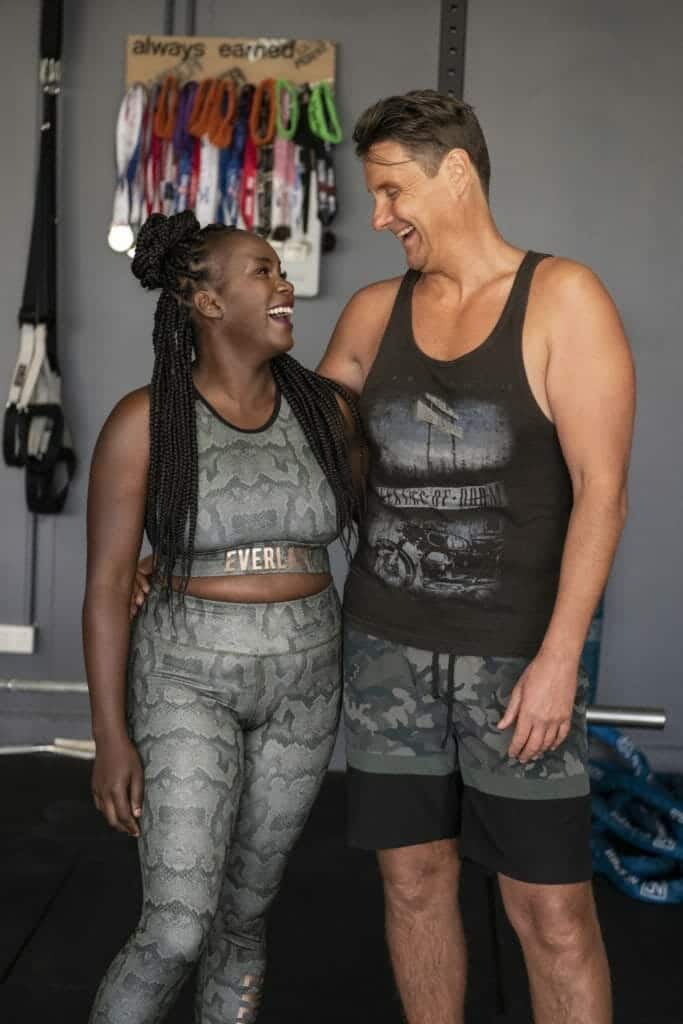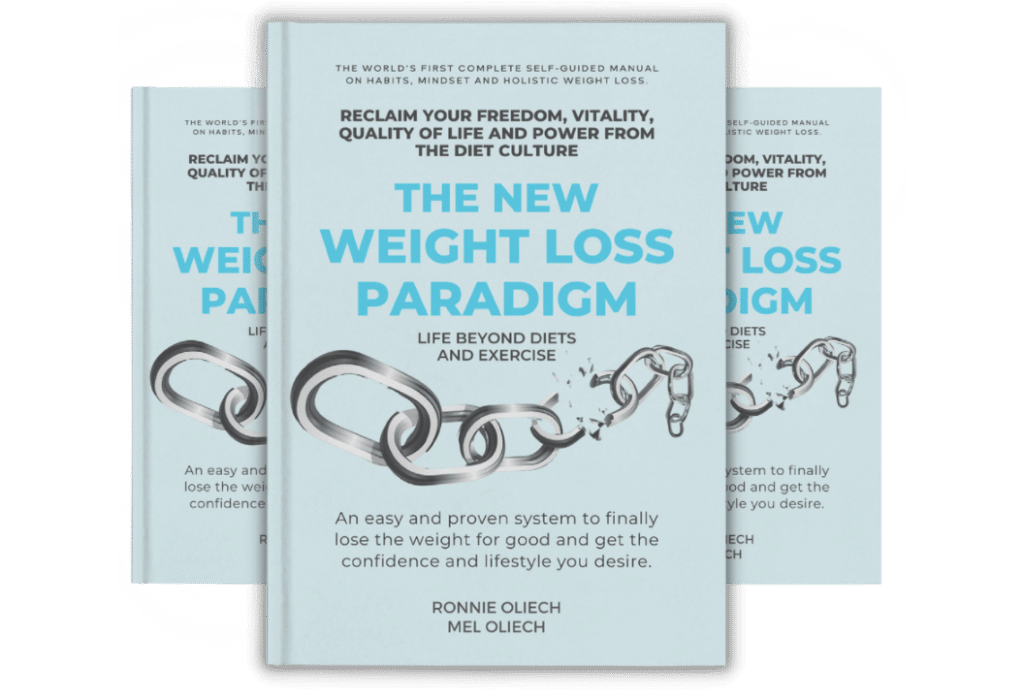Have you ever felt so bad about yourself that you vowed to do whatever it took to lose the weight once and for all?
Maybe you embarked on a diet, joined a gym or even signed up with a personal trainer.
You found it hard in the beginning, but you were determined to reach your goal, so you committed to the program wholeheartedly.
After a while, you found you were losing weight, your body shape was changing and you were beginning to feel more like yourself.
Your confidence began to climb again, especially when your friends and work colleagues commented on how great you looked.
But then you began to plateau. Your weight loss stalled but you still felt great. And you were still getting lots of positive comments about how good you looked.
So you stopped working so hard. You might have even gone off the diet, or broken up with your personal trainer.
You found that reaching your goal was not as important as it used to be, because now “you’re happy”, or “you’re in a good place”.
But the truth is that your goal is not as important because you’ve become complacent. And this complacency means you’re confusing feeling comfortable with feeling fulfilled from achieving the goals you set.
Complacency
Complacency means that you are overly content about settling for less than you desire and are capable of. It doesn’t mean you’re excited, or thrilled, or over the moon, or living life to your fullest potential. The only reason you feel comfortable and satisfied is because you’re no longer in as much pain as you were when you started your weight loss journey.
Becoming complacent is the beginning of a slippery slide back to where you came from. Being complacent is about letting your guard down, and being less focused and committed to doing the things you need to do, to ensure long-term weight loss success.
It’s easy to confuse complacency with success. After all, wasn’t the reason you got started in the first place because you were so unhappy? So if you’re feeling happy, you must have succeeded, right?
Not necessarily. You see, your contentment and satisfaction is only a result of not being in as much pain as you were before, not because you have reached your goal of permanent weight loss. And when you’re feeling more comfortable or happy, the incentive to keep working hard isn’t as strong.
Dangers of being complacent
The biggest danger of becoming complacent is that you’ll eventually end up back where you started. Because you only focused on losing weight in order to feel good, and you gave up when you started to feel good, the habits that led you to become overweight in the first place will over-ride any intentions of maintaining your weight, or continuing on your weight loss journey ‘on your own’. And before you know it, you’ll regain the weight you’ve lost (or even a bit more due to your compromised metabolism), and you’ll end up feeling as bad, or maybe worse, than you did when you first got started.
What you may not realise is that complacency is a disease that has the potential to derail your whole life, including your weight, personal relationships, professional success, and your emotional wellbeing.
If you don’t believe us, keep reading.
What are the signs that you’re becoming complacent?
It’s easy to become complacent without realising. Here are some tell-tale signs that you’re complacent:
- Starting and stopping everything you do (i.e. never finishing anything)
- Never feeling scared or nervous, and actively avoiding the things that you’re scared of
- Never trying new things (e.g. you go to the same places, eat the same things, hang with the same people, do the same things)
- Lack of ambition, or only working on superficial goals (e.g. being ‘fit’ or ‘getting toned’)
- Your behaviour is predictable (i.e. your friends know what you’ll do in a certain situation without you having to tell them)
- Feeling stuck or stagnant in your life
- Not trying anymore and thinking it’s okay if you don’t reach your goal
- No longer reflecting on your progress and assessing where you could improve
- Avoiding being accountable to other people, who you know will hold you accountable
- Comparing yourself to other people who are ‘worse than you’
- Telling people that you’re finally ‘in a good place’ as a way to justify why you’re no longer committed to your original goal
- Staying physically and emotionally in your comfort zone by living the same routine day in and day out
- Never challenging yourself to learn new things when every day should be an opportunity to learn something new
- Not feeling excited by small wins
- Making excuses as to why you can’t do things
- Telling yourself to be happy with what you have
- Rejecting change because it’s uncomfortable
- Thinking that you ‘know it all’ and don’t need help anymore.
The truth is that once you stop growing — growing in your awareness, learning and doing new things, challenging yourself and stepping outside your comfort zone — you become complacent. Life will always continue to change and move forward, but if you’re not changing and growing along with it, then you’re actually going backwards.
How many of us would use a mobile phone that came out 5 years ago? Of course not! Changing technology means that there are much better phones out there now, so why would you use an old, obsolete model when you can have something better? Not investing in your growth and becoming complacent is like settling on using a 5-year old mobile phone because ‘it will do’.
Why do people get complacent?
Fear
Most people become complacent because they’re afraid. The next step they need to take seems too hard, or too scary, so they retreat and tell themselves that ‘everything is okay’. Fear of failure and fear of what other people think derails most people. But becoming a people-pleaser to avoid your fears will only lead to more problems.
No smart goal
In order to keep pushing forward and embracing growth, you need to set a SMART goal. Without it, you’ll just flounder about, doing the things you want to do, instead of the things that you need to do.
Wrong support group
Because most people are afraid of accountability, they surround themselves with people who keep them comfortable by not challenging them. On the surface it might seem that a group of people who don’t ask the hard questions are supportive, but in reality, they are only keeping you stuck in the same rut.
No snap point
Complacency occurs because the pain of being overweight was not painful enough. In order to be ready to fully commit to the process of long-term weight loss, you need to have hit rock bottom. Rock bottom sounds like a scary place, but it’s necessary in order to have a snap point.
A snap point is when you’ve had enough. It’s when you can’t take it anymore. It’s the place where your pain is so great, that you’ll do anything to get out of that situation and never go back there again. In order to get results, the pain of staying the same, has to outweigh the pain of doing the work.
No WHY
It’s also easy to become complacent when you haven’t developed a clear WHY — your very deep, personal reason why you want to make long-lasting change. Your WHY will be what drives you when motivation is low, when you’re tempted to skip workouts, when you want to give into your fears and when you want to take the easy route. If you still haven’t developed your WHY, revisit our blog where we show you how to do it.
No accountability
If you’re not accountable to anyone, it’s very easy to become complacent. It’s easy to skip your workouts, binge on chocolate, and tell yourself that you’ll ‘get back on track’ soon. However, when your program includes accountability, you’ll be able to stay consistent with your efforts, which will keep you progressing. Because consistency is what will get you results.
How to avoid becoming complacent
Being complacent and avoiding evolving will cause you to become irrelevant and obsolete. The more complacent you become, the quicker you’ll find yourself replaceable. In business this means losing your edge and going out of business or losing your job. In your personal life, it means losing real and genuine friends and the strong connections you built through the years. With your health, it means continually gaining weight and becoming unhealthier every year and reducing the quality of your life. With your emotional wellbeing, it means becoming unhappy, unfulfilled and depressed.
Avoiding complacency is vital to live your best life. Here’s how to do it:
Be accountable
The best way to ensure you don’t become complacent is to work with a coach who will make you accountable. At Imani Tribe Transformations, we ensure our clients continue to progress, by giving them the tools, skills and action steps to help them reach their goals. When you allow yourself to be fully accountable, and work with a coach who will hold you accountable, there will be no room for complacency. And if you start to become complacent, your coach will let you know!
Be more self aware
By understanding and questioning how your choices, habits and behaviours are responsible for your current situation, you’ll gain greater self-awareness, which is the key to changing your life. After all, you can’t change what you’re not aware of. Recording data while working with a coach is the best and quickest way to increase your self-awareness.
Recognise that this is a keystone habit
Being complacent is a keystone habit that keeps people feeling stuck. The usual routine is that you run away when things get hard. Running away can mean distancing yourself from others who challenge you, stopping something that feels hard, distracting yourself with other things, or actively avoiding the things you find challenging. However, once you realise that your ‘go-to’ is to run away when things get difficult, you’ll have the power to change your routine, and stop your habit of complacency.
Focus on changing habits
When you focus on changing your habits around complacency, you’ll start growing and evolving again. Working with a coach who can show you the right action steps to overcome your fears, step outside your comfort zone, and do the things you need to do, is crucial if you want to stop falling into the complacency trap.
Stay out of your comfort zone and keep growing
When you stay comfortable, you become complacent, so avoid taking the easy route. Instead, commit to continually doing the hard things, because that’s where the real growth occurs. When you master one scary thing, set a goal to master another. And always avoid the temptation to think ‘I’ve come far enough’. The day we stop growing and learning is the day we become complacent. Aiming to be the best version of yourself means growing a little every day.
Set a big, scary and meaningful goal
Setting a big, scary and meaningful goal will help you stay the course. It will help even more if you tell other people about your goal, because that provides another layer of accountability. It doesn’t matter what your goal is, but if it is big, scary and meaningful, it will keep pushing you to take action and keep moving forward.
Be aware of people-pleasers
We all have well-meaning friends and family members who think they’re being kind by telling us we look ‘fine’, or ‘great’. But understand that most people you come across are people-pleasers and will tell you what they think you want to hear. How many times has a friend said to you “you don’t need to lose weight” or “I think you look great” or “you’re fine as you are”? Instead, look for a genuine support group who will help you stay accountable, and who really do have your back and who will tell you what you need to hear, not what you want to hear.
Being complacent = going backwards
Being complacent may feel comfortable, but it means you’re going backwards.
Many people think that maintaining the status quo and living an average life is okay. This is especially the case when they compare themselves to others who appear to be ‘worse off’. However, we only get one shot at this life, so wouldn’t you want to make it your best life? The truth is, if you’re not working on become better than you were yesterday, last week or even last year, you’re going backwards. Because if you wake up 5 years from now, and everything is the same, and you haven’t achieved any of the goals you want to, how will you feel? Especially if other people you know have continued to grow and challenge themselves and have achieved theirs? You’ll be just like that old phone we talked about.
If you’re sick of settling and living an average life, please let us help.


















